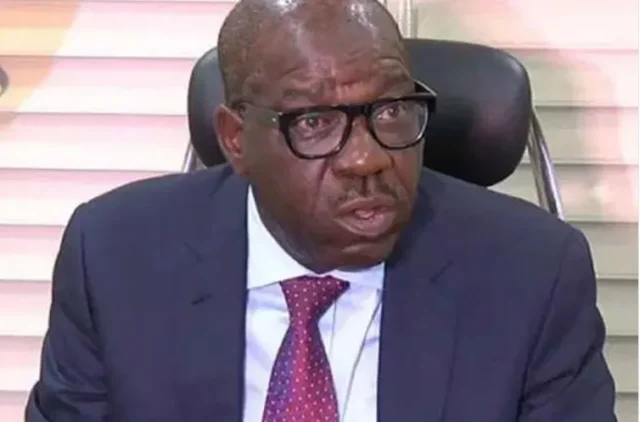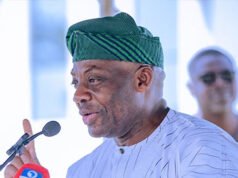APC Accuses Obaseki of Orchestrating Mass Protest to Disrupt Nigeria’s Elections—Here’s What Sparked the Allegations”
The All Progressives Congress (APC) has accused Edo State Governor, Godwin Obaseki, of plotting to organize a mass protest aimed at disrupting the upcoming national elections in Nigeria. The APC’s allegations have sparked significant political tension, raising concerns about the stability of the electoral process and the broader implications for Nigeria’s democracy.
Political Tensions and Power Struggles
The root of the APC’s allegations lies in the intensifying political rivalry between the ruling party and opposition figures like Obaseki. As the 2024 elections approach, political parties are increasingly engaged in a fierce battle for power. The APC claims that Obaseki, a member of the opposition People’s Democratic Party (PDP), is allegedly planning to incite widespread protests to create chaos and undermine the credibility of the election process. The APC argues that such actions could be a deliberate attempt to destabilize the political environment and weaken the ruling party’s hold on power.
Response to Alleged Unfair Practices
Obaseki’s purported plan for a mass protest is reportedly in response to what he and his supporters perceive as unfair practices and manipulation of the electoral process by the APC. There have been ongoing accusations of voter suppression, intimidation, and other undemocratic tactics allegedly employed by the ruling party to secure victory in the upcoming elections. Obaseki, along with other opposition leaders, is believed to be frustrated with these developments and sees mass protests as a way to draw attention to these issues and demand a fair and transparent electoral process.
Mobilizing Public Sentiment
Another factor contributing to the APC’s allegations is Obaseki’s ability to mobilize public sentiment. As a sitting governor with significant influence in Edo State and beyond, Obaseki has a substantial following that could be mobilized for protests. The APC fears that such protests could quickly escalate, leading to widespread unrest and potentially disrupting the entire election process. The party’s concerns are amplified by the current socio-economic challenges facing Nigeria, which have already led to public dissatisfaction and protests in various parts of the country.
Implications for Nigeria’s Democracy
The APC’s accusations against Obaseki have broader implications for Nigeria’s democracy. If the allegations are true, it could signal a troubling trend of political actors resorting to extra-legal means to achieve their goals, undermining the electoral process and potentially leading to violence. On the other hand, if the accusations are unfounded, it could be seen as a tactic by the APC to discredit a prominent opposition figure and suppress legitimate dissent.
Calls for Calm and Dialogue
In the wake of these allegations, there have been calls for calm and dialogue between the parties involved. Civil society organizations and international observers have urged political leaders to prioritize the stability of the country and the integrity of the electoral process. They have also called on the Independent National Electoral Commission (INEC) to ensure that the elections are conducted in a free, fair, and transparent manner to prevent any justification for protests or disruptions.
Conclusion
The APC’s accusations against Governor Obaseki of plotting a mass protest to disrupt Nigeria’s elections highlight the deepening political tensions in the country. Whether these allegations are a reflection of genuine concerns or a strategic move by the ruling party, they underscore the need for a transparent and peaceful electoral process. As Nigeria approaches the 2024 elections, all stakeholders must work together to ensure that the process is credible and that the will of the people is respected.
Join Our Social Media Channels:
WhatsApp: NaijaEyes
Facebook: NaijaEyes
Twitter: NaijaEyes
Instagram: NaijaEyes
TikTok: NaijaEyes





